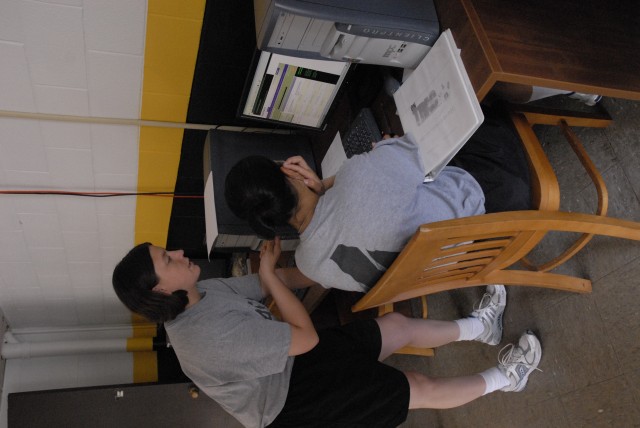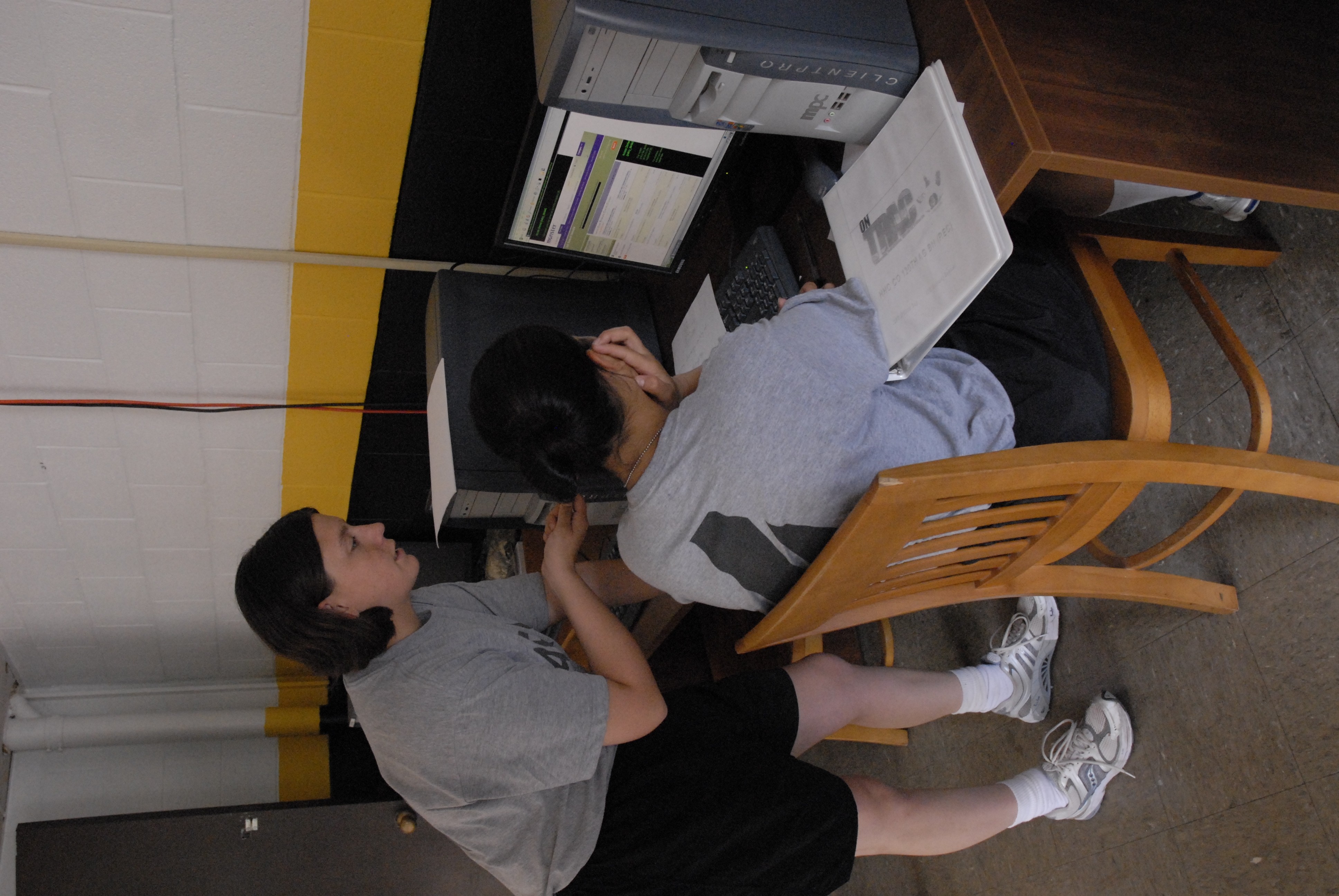Amanda Bunton's lifelong dream has been to serve her country as a Soldier. Her aspirations to join the Army ended last week when her asthma became too serious for her to continue training.
Bunton is not without a plan, however. Thanks to the OnTrac program, separating Soldiers, such as Bunton, are provided the tools and resources to enter the competitive job market.
"We are setting these Soldiers up for success as a civilian, so that when they get back home they are not sitting around all day at their parents' house," said Capt. William Coy, Headquarters and Headquarters Company commander.
The three-day program consists of a variety of classes that help separating Soldiers complete resumes, build interview skills and conduct online job searches. Other classes focus on education, grants and scholarships.
"This program has been really great for me," said Bunton, 19, of Yuba City, Calif. "I have made a resume, learned interview skills and searched online for jobs. I didn't know the Army did this. It makes you feel like they care about you even if you are leaving."
The majority of those separating from the Army do so because of medical conditions, Coy said. Others reasons for leaving are mental disorders, family hardships, failure to adapt and physical-training failure.
"We want these Soldiers to leave with a good impression of the Army, so that when they are in the civilian world they will be like mini-recruiters for us," Coy said.
Amanda Carroll, 18, of Virginia Beach, Va., is separating from the Army this week.
"I like the program," she said. "It has given me a lot of avenues in finding a job when I go back home."
OnTrac, which was originally under Company D when it was started by Capt. Bridgett Brown and 1st Sgt. Patrick Thomas, moved to HHC in November.
"It is hard to track the success of OnTrac because we have no way of finding out what happens after they return to civilian life," Coy said. "But we give them the tools for success. I kind of equate it to a Big Brother, Big Sister program."
Chris.Rasmussen@us.army.mil


Social Sharing